Current Recipients
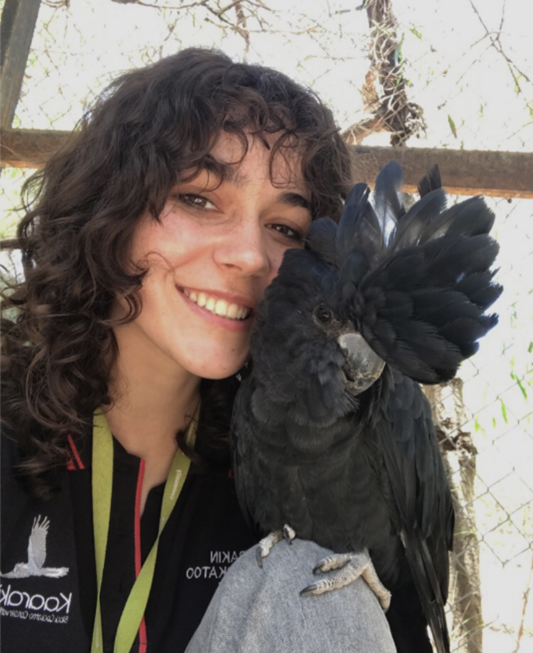
Natalie GRASSI (Murdoch)
How do predators prefer to move through the landscape? An analysis of telemetry data.
Natalie Grassi is a PhD candidate at Murdoch University with a passion for predator ecology, ecological restoration, and native wildlife conservation. Her research explores how red foxes and feral cats interact with different habitat types and landscape features within a fragmented landscape, and how this impacts native fauna.
Using methods like GPS tracking, predator diet analysis, camera trapping, and analysis of long-term occupancy data, Natalie’s work aims to better quantify the impacts of introduced predators and inform conservation and management strategies within the Fitz-Stirling landscape.
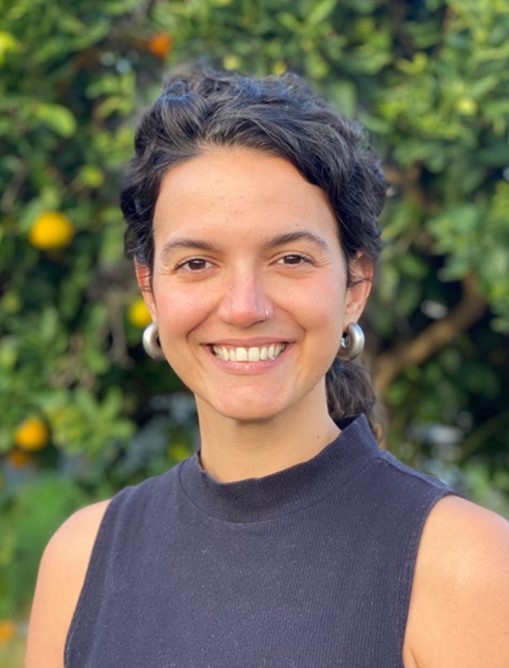
Sara CAVALCANTI MARQUES (Murdoch)
Assessing co-benefits of incorporating bush tucker to land stewardship practices.
Sara holds a Bachelor’s degree with honours in Terrestrial Ecology from the Sao Paulo State University in Brazil, and is currently conducting her PhD research at Murdoch University in affiliation with the ARC Training Centre for Healing Country. In Australia, Sara coordinated Curtin University’s Tourism Research Cluster before commencing her doctorate degree in 2022, having conducted a series of research projects on Indigenous tourism development for peak industry bodies in Western Australia. Sara’s PhD explores the socio-ecological benefits of incorporating native bush tucker to land stewardship practices involving Traditional Owners. Her key research interests centre on ecosystem restoration, biodiversity conservation, food cultivation and sustainable community development. Through her doctorate, Sara assesses the potential of diversifying ecological restoration to include Indigenous engagement and bush produce cultivation to boost social and environmental outcomes in regions. Sara is currently based on Yawuru Country in Broome, where she is evaluating the application of the Savannah Enrichment model in the West Kimberley.
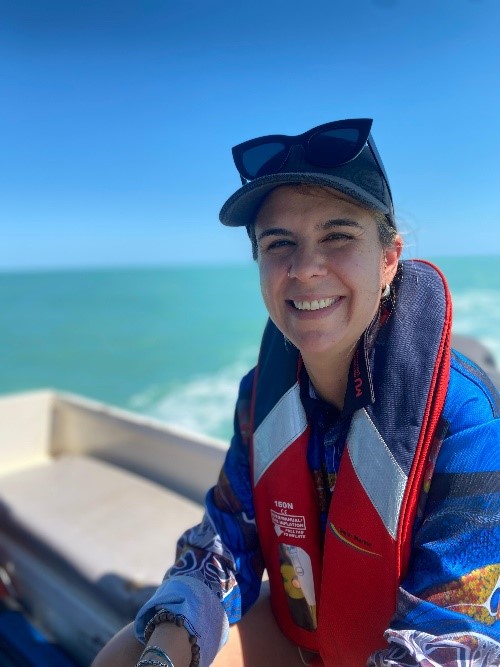
Carmela DE BENITO ABELLO (Murdoch)
Foraging ecology of green turtles inhabiting a dynamic environment in the Kimberley region, Western Australia.
Carmela is a marine ecologist specializing in movement and behavioural ecology, with a focus on understanding how environmental conditions influence the behaviour and spatial use of marine species. Currently pursuing her PhD at Murdoch University, her research investigates the foraging ecology and habitat use of green turtles (Chelonia mydas) in Yawuru Nagulagun Roebuck Bay Marine Park (YNRBMP), Western Australia. She employs techniques such as stable isotope analysis and passive acoustic telemetry to explore how dietary preferences and habitat use are shaped by environmental variability.
Carmela’s work is part of “Yagarrajalajalan Nagula Buru: We All Care for Saltwater Country”, a collaborative, multi-disciplinary research initiative that follows principles of two-way knowledge exchange to advance equity in marine park co-management and enhance shared custodianship of Saltwater Country. With plenty of experience doing fieldwork in remote areas and working with indigenous communities, her involvement in this project shows her dedication to inclusive conservation strategies. By combining Yawuru ecological knowledge with scientific research, Carmela’s project focuses on addressing local concerns around protecting green turtles and their habitats. The participatory approach of the project aims to uncover key food resources and habitats to help protect these vulnerable species while strengthening the link between conservation and cultural heritage.
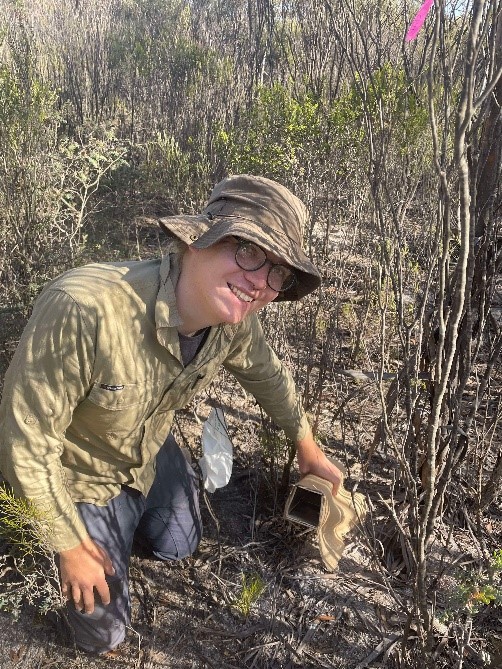
Cameron DODD (UWA)
Cryptic Kultarr: Evolution and Biogeography of arid-zone dasyurids.
Cameron is a taxonomist and evolutionary biologist who specialises in the marsupial family Dasyuridae, which includes iconic species like quolls and Tasmanian Devils. They use a combination of genetic techniques and skull-shape analysis to identify new species of small mammals which have gone undetected in museum collections and remote areas of arid Australia. Specifically, Cameron works on kultarr (Antechinomys) and dunnarts (Sminthopsis), both of which contain several species yet to be described. In addition to this, Cameron is using micro-CT scanning technology to investigate the evolution of skull and inner ear shape in dasyurids, focussing on how they have adapted to increasing aridity across the continent over the last 15 million years.

Hannah WHITAKER (UWA)
A Re(ef)-Scaling of Our Tools for Managing Marine Heatwaves and Identifying Climate Refugia in Western Australia’s Marine Parks.
Hannah is a PhD student studying coral reef hydrodynamics and marine heatwaves at The University of Western Australia. Her project focuses on the distribution of stressful temperature anomalies across and between reefs using a combination of temperature monitoring arrays and field-validated numerical modelling. With fieldwork supported by the John Glover Research Grant, Hannah’s research will help identify reef sites and coral assemblages most at risk under climate change, as well as those that will most benefit from conservation intervention.
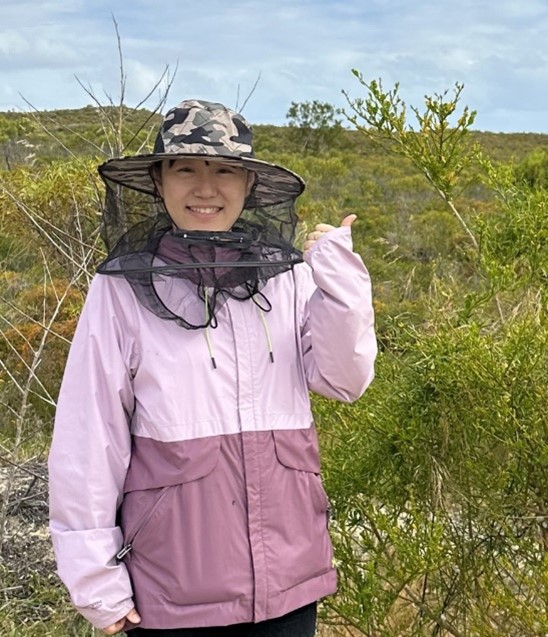
Ling ling CHEN (UWA)
Phosphorus-utilisation strategies in Proteaceae, Fabaceae, Myrtaceae and Ericaceae in contrasting habitats.
Ling-Ling Chen is a PhD candidate at the University of Western Australia, passionate about unravelling how south-western Australian native plant species efficiently acquire and utilise phosphorus (P) in P-impoverished habitats. She completed a Master of Environmental Science at Tianjin University, China, focusing on plant nutrient transport.
Supported by the RSWA John Glover Research Grant, her research aims to identify correlations between soil P concentrations and specific P-utilisation strategies and analyse lipid P and metabolite P molecules, contributing valuable insights into effective ecosystem management and nature conservation.

Zhe ZHANG (UWA)
Protection of eucalypt species against Phytophthora infection in an extremely phosphorus-impoverished environment: insights into the different roles of mycorrhizal fungi.
Zhe Zhang is a PhD candidate at the School of Biological Sciences, The University of Western Australia (UWA). Her research focuses on understanding how native Western Australian eucalypt species resist Phytophthora infection with the assistance of mycorrhizal fungi. By examining root exudates and fungal secretions, her work aims to develop eco-friendly strategies to mitigate root rot caused by Phytophthora, a pressing issue for native species.
Growing up in a province renowned for its forestry industry, Zhe has cultivated a deep passion for forest ecosystems. Her master’s research centered on soil nutrient cycling in forest ecosystems, laying the foundation for her current project. Zhe’s work has the potential to contribute to sustainable forest management and the conservation of native Australian species.

Mnqobi ZUMA (Murdoch)
The implications of multiple disturbances on plant-soil interactions.
Mnqobi is a forest ecologist with over five years of experience as a research forester in a pine tree breeding program at Mondi in South Africa. He holds a Master of Science in Biocontrol Solutions for Plant Health from Université Côte d’Azur in France and is pursuing a PhD at Murdoch University.
His research investigates the effects of fire, drought, and Phytophthora cinnamomi interactions on plant-soil feedback—how plants interact with their soil environment—in the Northern Jarrah Forest. Mnqobi addresses the critical question of how an already stressed forest responds to additional disturbances and explores the role of fungal associations in supporting ecosystem resilience.
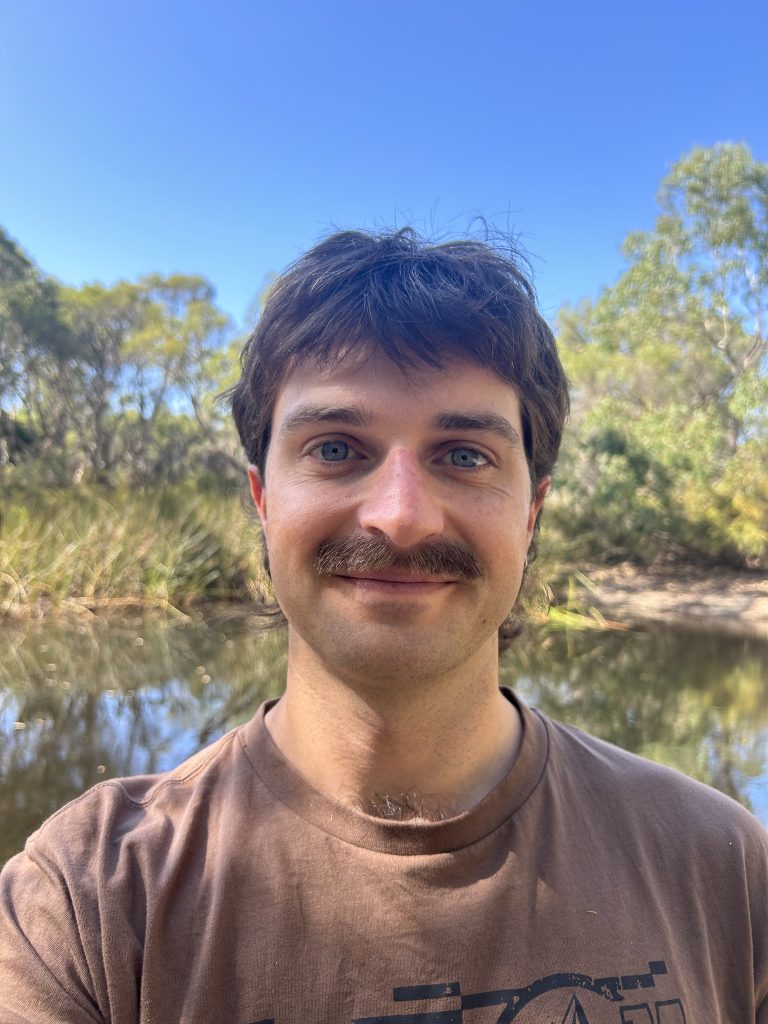
Zachary KAYLL (Murdoch)
Biodiversity change in wetlands exposed to a rapidly drying climate.
Being intrigued by all things odd and tiny has led Zac into a PhD position in freshwater invertebrate ecology. Located around metropolitan Perth on Whajduk Noongar Boodja, his PhD aims to understand how shifts to shorter hydroperiods effect invertebrate communities in temporary wetlands. Zac’s project will use a comprehensive historical data set from 1989-1990 to compare assemblages across a 35-year time span. He will also try to understand if prolonged dry periods have influenced seasonal wetlands suitability for invertebrate survival. All in the hope to aid in protecting these biodiversity pockets for our little critters, and ultimately, much larger, bipedal critters.
